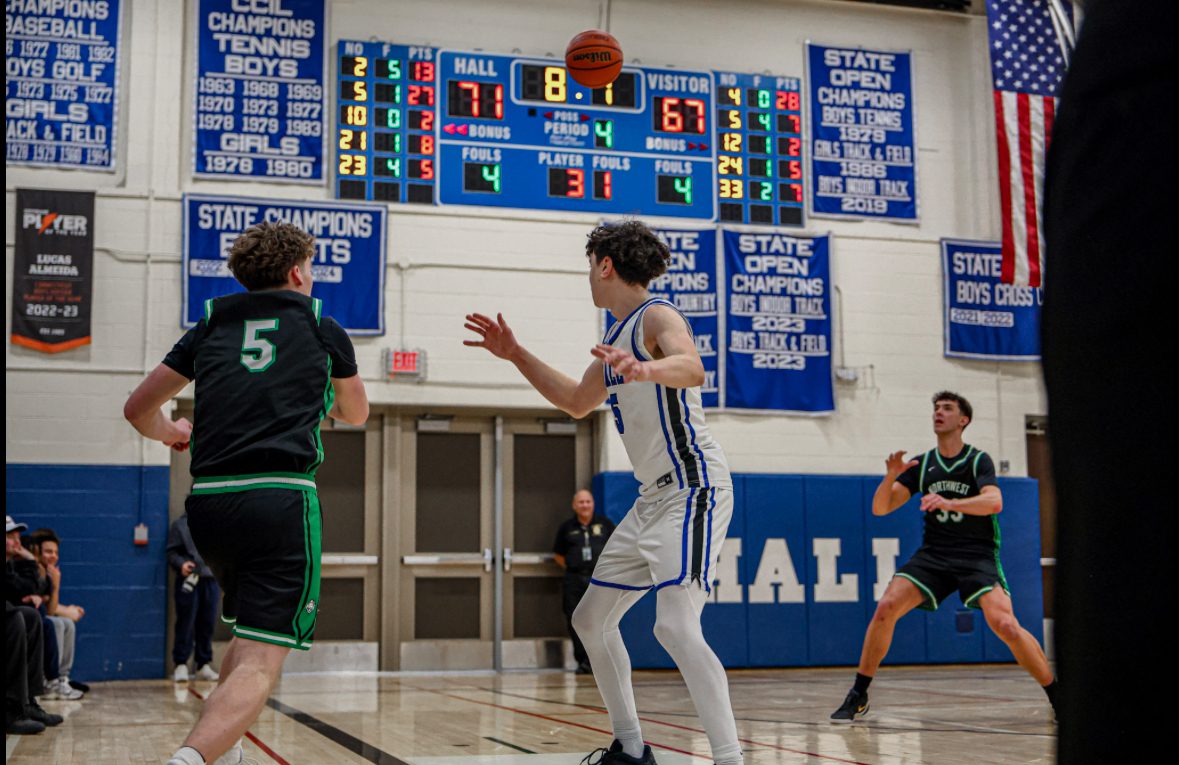College Bound: Choosing a College

Audio By Carbonatix

Adrienne Leinwand Maslin. Courtesy photo
We-Ha.com will be publishing a series of essays/blogs/reflections on the issue of going to college – primarily a set of thoughts and musings, along with some practical advice, intended to support students and parents as they embark on this journey. While many of our readers are experts in this topic, many others are less knowledgeable and have little outside support. We hope this is helpful to all readers as they go through the various stages of getting into and getting something out of college.
By Adrienne Leinwand Maslin
In the opening post in my series on colleges, I suggested you choose the college that suits you the best. To go where you feel the faculty and staff have a commitment to your success. To go where you will thrive regardless of where your friends are going or what would look good on a resume. Now we’ll get a little more granular.
Before continuing, however, it is important for me to give a nod to the counselors at Conard and Hall High Schools who provide excellent college counseling services. High school counselors are so very helpful in this process. Some students, however, still feel a need for another perspective and, with more students being home-schooled, not everyone has access to a counselor. So, this piece is written largely with these students in mind.
There are hundreds upon hundreds of books on the market today to help young people and their parents negotiate the maze of college choice, admissions, and financial aid. Many people are familiar with the college and university rankings of U.S. News and World Report. For better or for worse, whether justified or not, those rankings are out there and many people seriously consider them. There are rankings based on academic rigor, size of the endowment, student SAT scores, and number of students who were high school valedictorians. There are even rankings based on the quality of the food served in the dining halls – a measurement not to be taken lightly. (A number of surveys cite UCLA as having the best food.)
Many books go well beyond rankings and discuss the college choice and admissions process quite thoroughly. So, there’s lots of great advice out there and I don’t wish to duplicate any of it. But I’m sure I will. I certainly have not read every single one of those books and articles, those I have read are already duplicative, and most parallel my own knowledge and experience. So, there’s bound to be overlap.
As I mentioned in my previous blog, there are about 3,500 colleges and universities in the United States. I won’t even get into the many excellent universities in other countries. So, where to start? How do you get it down to a manageable 15 or so to really focus on?
Let’s start with a question: are colleges and universities the same thing? Many people do use these words interchangeably to refer to an institution of higher education but there are some differences. Universities are typically larger and offer degrees at both the undergraduate and graduate levels. Many universities offer doctoral degrees and have professional schools, such as law or medical schools, associated with them. Colleges typically offer only the bachelor’s degree – possibly some master’s degrees – and, in general, have fewer students and smaller campuses. And community colleges generally offer only the associate’s degree which, if a student is going full-time, can be completed in two years.
Many students and parents have just one thing on their minds when choosing a college. Some families zero in on cost as the single most important factor. Which universities are in their price range? Or, possibly, they only want to focus on the public universities in their own state. Other families focus on distance. Many young people want to leave home for college. What do you consider to be a reasonable distance from your home? A two hour drive? A six hour flight? (One thing many students don’t anticipate when choosing a college is homesickness. It can happen to anyone when starting off in an unfamiliar place. Feeling homesick when you’re two hours from home may be less difficult than if you’re 10 hours away.) Climate is a big factor for some students. Some students have been waiting for 18 years to leave the cold Connecticut winters behind and see college as their chance.
Other students and their families focus on prestige. Can I get into an Ivy League* school? The University of Chicago? Stanford? Any one of a number of small, selective, liberal arts colleges? There’s nothing wrong with this and if you have the academic ability and drive to attend a prestige college or university, that’s terrific. Elite universities have extensive alumni networks and are well-endowed. It can certainly be advantageous to put a big-name university on your resume and connect with alumni who have “made it” in their disciplines. And top-tier colleges are excellent places of learning.
But, college is what a student makes of it and if you feel uncomfortable reaching out, taking the initiative, or taking on leadership roles, you may be more comfortable elsewhere. Combining factors like prestige and distance can be very helpful in narrowing the list. Just don’t let a college’s prominence be the overriding factor.
Many students know right away that a small college in a rural location is the right place for them. And an equal number know from the beginning that it isn’t. For these students, a large, urban university is the place to start. Some want to be able to play a particular sport or be in the marching band or write for the campus newspaper and, therefore, select a college that will allow them to do that – perhaps even give them a scholarship to do that.
I think these gross categories can be a realistic starting point and provide a possible way to winnow things down:
- Cost
- Distance
- Prestige
- Size
- Geographical location/climate
- Major
- Sport or activity
- Community college vs. four-year institution
- Public vs. private institution
Once you’ve made a couple of decisions – I must go to school in Boston! I need a bike-friendly college! I want to join the swim team! – the college website is the next best place to visit.
College websites vary in their navigability. Most, however, will have links on their homepage that take users to information on academics, campus life, and admissions. In these three sections you will find information on available majors, degree requirements, the faculty, what kind of extracurricular activities are available, where the students are from, whether living on campus is required of first-year students, the kind of food served in the dining halls, and what you need to do to apply.
Of particular importance are the pictures. You’ll want to see what the campuses look like. If a campus is very hilly and you have a mobility impairment you may need to consider how this will affect you. And what vibe do you get from the students in the pictures? Are there a reasonable number of students of color? If no, what does that mean for you? Ask yourself the question: “Can I see myself there?”
Of course, any research you do must include the academic requirements for admission. Does the college require SAT or ACT scores? Many no longer do and others are “test optional.” But if the colleges you are considering do require such scores, are yours within their desired range or reasonably close? What academic average do admitted students have? Is your’s close? What high school coursework is required for admission to college? Are you on target to meet the academic requirements for admission?
Visiting a college is always worthwhile but not always doable. Distances and personal finances frequently interfere with a student’s ability to visit a college. If a campus visit is out of the question for you, you might consider calling the admissions office and asking to speak with some current students or faculty. No one better than a student to paint a picture of the college – the good, the bad, the quirky. If you’re interested in student government, ask to speak with a student who is closely involved. If you are thinking of majoring in a particular discipline, ask to speak to a faculty member in that discipline. And while some who work in college admissions see the campus visit as a true indication of one’s interest, I believe you can give a strong indication of your interest through a Zoom or telephone interview.
Following the steps above should enable most students to reduce their list of “serious” schools down to a reasonable number. And, there are some excellent online platforms to help facilitate your choice of college. The College Board (www.collegeboard.org) is a terrific place to start. Many high schools participate in Naviance (www.naviance.com) which is another very useful tool. However you choose to go about this task, treat it as an adventure. As daunting as it can be, it will lead you to a wonderful next phase of your life. Ask questions and tackle the process with confidence. And choose the school that is the right one for YOU.
*The Ivy League schools include Brown, Columbia, Cornell, Dartmouth, Harvard, the University of Pennsylvania, Princeton, and Yale. The term “ivy league” was originally coined to reflect the fact that these eight schools are members of a particular athletic conference. Today the term largely denotes that these schools are academically excellent and rigorous, extremely selective in their admissions, and, perhaps, have an air of elitism.
Adrienne Leinwand Maslin recently retired from a 45-year career in higher education administration. She has worked at public and private institutions, urban and rural, large and small, and two-year and four-year, and is Dean Emerita at Middlesex Community College. She has held positions in admissions, affirmative action, president’s office, human resources, academic affairs, and student affairs. Maslin has a BA from the University of Vermont, an MEd from Boston University, and a PhD from the University of Oregon. She is presently creating a TV/web-based series on life skills and social issues for 9-12 year olds believing that the more familiar youngsters are with important social issues the easier their transition to college and adulthood will be. Information about this series as well as contact information can be found at www.shesroxanne.com.
Like what you see here? Click here to subscribe to We-Ha’s newsletter so you’ll always be in the know about what’s happening in West Hartford! Click the blue button below to become a supporter of We-Ha.com and our efforts to continue producing quality journalism.




Great article: College Bound: Choosing a College by Adrienne Leinward Maslin.
I am looking forward to this series because Dr. Maslin has set out accurate and important factors to consider in choosing a college or university.
Sincerely,,
James A. Johnson
http://www.JamesAJohnsonEsq.com
Thank you, Mr. Johnson! I’m thrilled that you read and thought highly of the essay and hope you find the entire series useful.
Adrienne